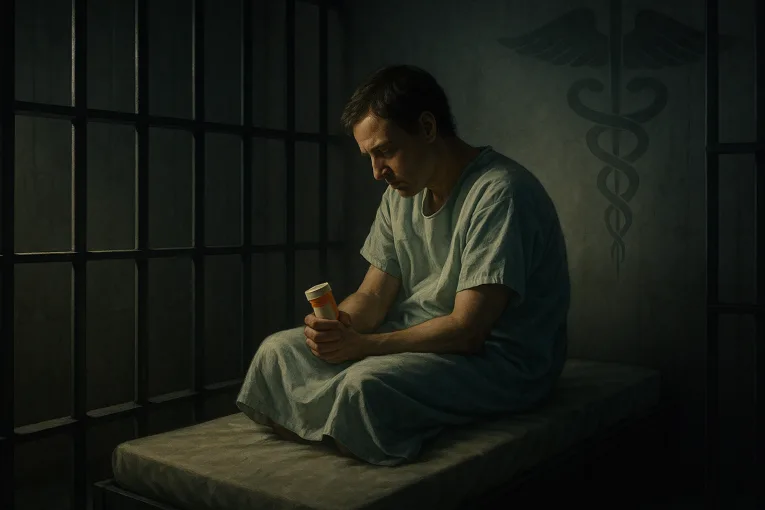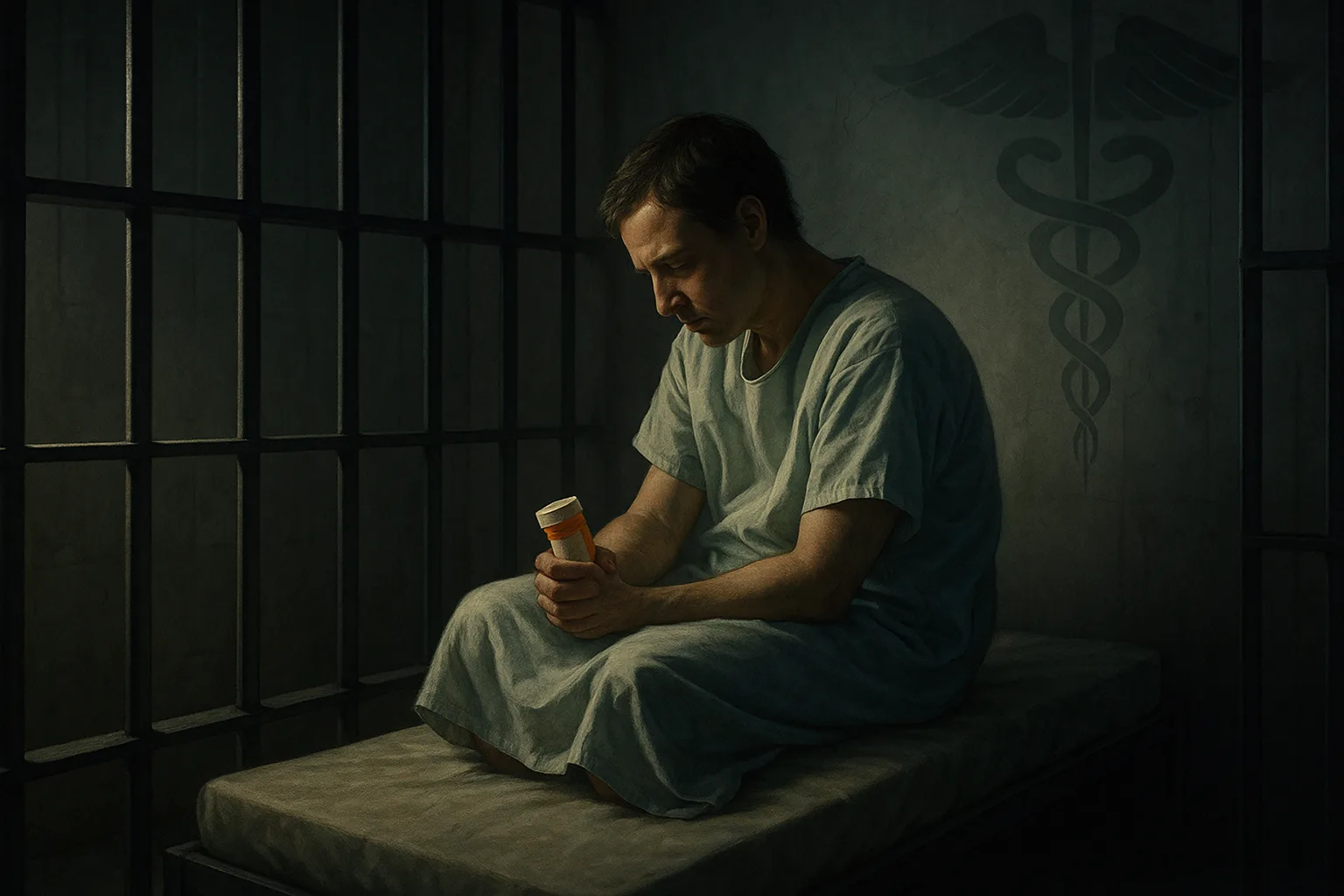
jail health care crisis – generated image
By Angelikka Factor
NATIONWIDE — In an article in The Hill, author John Bowman highlights a critical, overlooked issue in the U.S. criminal justice system: the loss of health care coverage for individuals incarcerated while awaiting trial.
A majority of these individuals, all presumed innocent, enter custody with serious mental health challenges or substance use disorders. According to Bowman, the moment they are booked, their Medicaid and other health benefits are often suspended.
Bowman argues this policy undermines public health and puts lives at risk. Many pretrial detainees lose access to medication and other essential forms of care.
These individuals often rely on consistent medical treatment to maintain physical and mental stability. The disruption can be dangerous and, in some cases, deadly.
Bowman calls for the passage of the Due Process Continuity of Care Act, which would allow individuals to retain Medicaid coverage during pretrial incarceration. Under current law, Medicaid benefits are revoked the moment someone enters jail custody—even if only temporarily.
If passed, Bowman explains, this legislation could help shift the justice system from one rooted in punishment to one grounded in care, continuity, and humanity. He argues that arrest should not strip away a person’s dignity or access to needed treatment.
Bowman emphasizes that the connection between untreated mental illness and incarceration is no coincidence. Many people end up behind bars not because they are dangerous, but because they were denied access to care before their arrest—and face even fewer resources after release.
The article notes that, without a plan to reinstate medical coverage, released individuals often fall back into the same instability—but now with even fewer tools to survive. Studies show people are 129 times more likely to die of a drug overdose in the first two weeks after release.
“Our jails, already under-resourced and overwhelmed, have become the frontlines of a behavioral health crisis they were never built to manage,” Bowman writes. “They’re acting as detox centers and psychiatric hospitals by default, and that’s not just unsustainable, it’s inhumane.”
Maintaining care for incarcerated people is not only a moral responsibility, Bowman argues, but “smart policy.” He writes that it prevents needless suffering, lowers recidivism, and reduces pressure on emergency services and hospitals.
Continuity of care, he adds, is crucial for helping people rebuild their lives and stay healthy. It also saves money by reducing the cycle of incarceration and crisis care.
The Hill concludes that stripping health care from someone who hasn’t been convicted is not justice—it is a systemic failure. If society is serious about addressing addiction and mental health, health care must not stop at the jailhouse door.
Bowman urges lawmakers to ensure that people in custody receive the care they need to preserve their health, humanity and dignity.
Categories: Breaking News Everyday Injustice Tags: Behavioral Health Crisis Due Process Continuity of Care Act emergency services Jails John Bowman Medicaid substance use disorders The Hill
